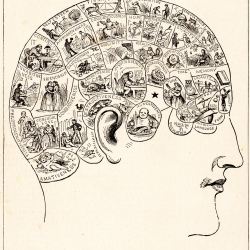 By Alex Berezow, PhD — December 30, 2020 @ American Council on Science and Health
By Alex Berezow, PhD — December 30, 2020 @ American Council on Science and Health
Though we spent about nine months of the year focused almost exclusively on COVID, we did find time to debunk pseudoscientific nonsense. Here are the top 10 junk science and bogus health claims we debunked in 2020.
The ACSH mission statement is very clear: "To publicly support evidence-based science and medicine and to debunk junk science and exaggerated health scares." Basically, we were founded in 1978 to combat misinformation, long before the advent of "fake news" and "fact checkers."
This year was no different from any other year. Though we spent about nine months of it focused almost exclusively on the coronavirus, we did find time to debunk pseudoscientific nonsense. Here are the top 10 junk science and bogus health claims we debunked in 2020:
10. A team of researchers at Yale claimed a link between fracking and sexually transmitted diseases. In what has to be one of the worst articles we have ever seen, a group from Yale implausibly claims that fracking is linked to the spread of chlamydia and gonorrhea but not syphilis, and that fracking produces this effect in Texas but not Colorado or North Dakota. This is data dredging at its absolute worst, and the only real question is how something this embarrassingly awful could get published in the first place.
9. The Atlantic published an article called "America's Favorite Poison," which scolded us over the dangers of alcohol and waxed poetic for the Prohibition Era. This was before the COVID pandemic, so the media was searching hard for things to scare Americans about. The Atlantic focused on alcohol, using cherry-picked data to parrot the unsubstantiated claim that even moderate drinking is unsafe. The Atlantic went on to publish a series of articles on COVID denial, apparently oblivious to the fact that media sensationalism is one of the leading reasons why the public fails to take real threats like the coronavirus seriously.
8. AARP scares elderly people into eating organic food. If the coronavirus wasn't scary enough, AARP Magazine published an article by Mark Bittman, an organic food activist who once claimed that GMOs cause leukemia. Contrary to scientific evidence, Mr. Bittman encourages elderly people -- many of whom are on limited incomes -- to spend those precious dollars on overpriced organic food.
7. The journal "Science" accepted and then rejected an article on my career as a junk science debunker because I'm a "corporate shill." After nine revisions and two months of editing, a column I submitted to the prominent journal Science was spiked by a senior editor. Why? Because I'm a corporate shill, of course. The delicious irony is that the journal has a page on its website in which it literally begs corporations to send money. We have long known that the scientific publishing industry is thoroughly corrupt and increasingly useless, but it's quite another thing to experience it first-hand.
6. The healthcare system is financially benefiting from the coronavirus. When the pandemic hit the U.S., some people claimed that hospitals and doctors could illicitly benefit themselves by diagnosing a patient with COVID, even if he or she didn't actually have it. There is no merit to this allegation. Besides, any hospital caught doing something like that can get fined.
5. Environmentalists oppose the very policies they endorse. Pretty much every year, a story about how environmentalists are hypocrites usually makes the top 10 list. It's like shooting fish in a barrel. This year, electric car-loving environmentalists opposed the construction of an electric car manufacturing plant in Germany. The Union of Concerned Scientists opposed programs meant to conserve water and energy because it made labor unions mad.
4. Michael Shellenberger, a prominent environmentalist, was called a "white supremacist" for debunking myths about climate change. Mr. Shellenberger is an ecomodernist, a person who believes that technologically savvy humans can fix big problems, like climate change. As part of his mission, he debunks climate myths, such as the notion that wildfires are getting worse. For his evidence-based arguments, he was censored by Forbes and called a "white supremacist." Our society has learned that, when you're losing an argument, the best way to respond is to try to destroy the other person's character and career.
3. Politicians keep blaming the opioid crisis on prescription drugs. We know why people are dying from opioid overdoses: The drugs they are taking, such as heroin purchased from the neighborhood dealer, are laced with illegal fentanyl. Yet, politicians keep going after prescription opioids, as if they are the cause of our current problems. They are not. In the meantime, patients who need powerful painkillers are being forced to suffer due to cruel policies that restrict access to these vital medicines.
2. Anti-vaccine activists smell a coronavirus conspiracy. Children's Health Defense, the ironically named organization founded by anti-vaxxer RFK, Jr., believes that the COVID pandemic is little more than a conspiracy by elites to immunize the world and make Big Pharma wealthy. Since most of society has been begging the pharmaceutical and biotech industries to rescue us from the coronavirus, hopefully this renewed confidence will help bury anti-vaccine ideology for good.
1. COVID is caused by glyphosate or 5G. Of the many conspiracy theories out there regarding COVID-19, none are dumber than the notion that glyphosate (a pesticide) or 5G wireless technology caused it. Yet, one of the proponents of the former is an MIT senior research scientist. A different scientist claims that our cells are being poisoned by 5G, and in response, they produce viruses. Our fact checkers rated these claims as:


No comments:
Post a Comment